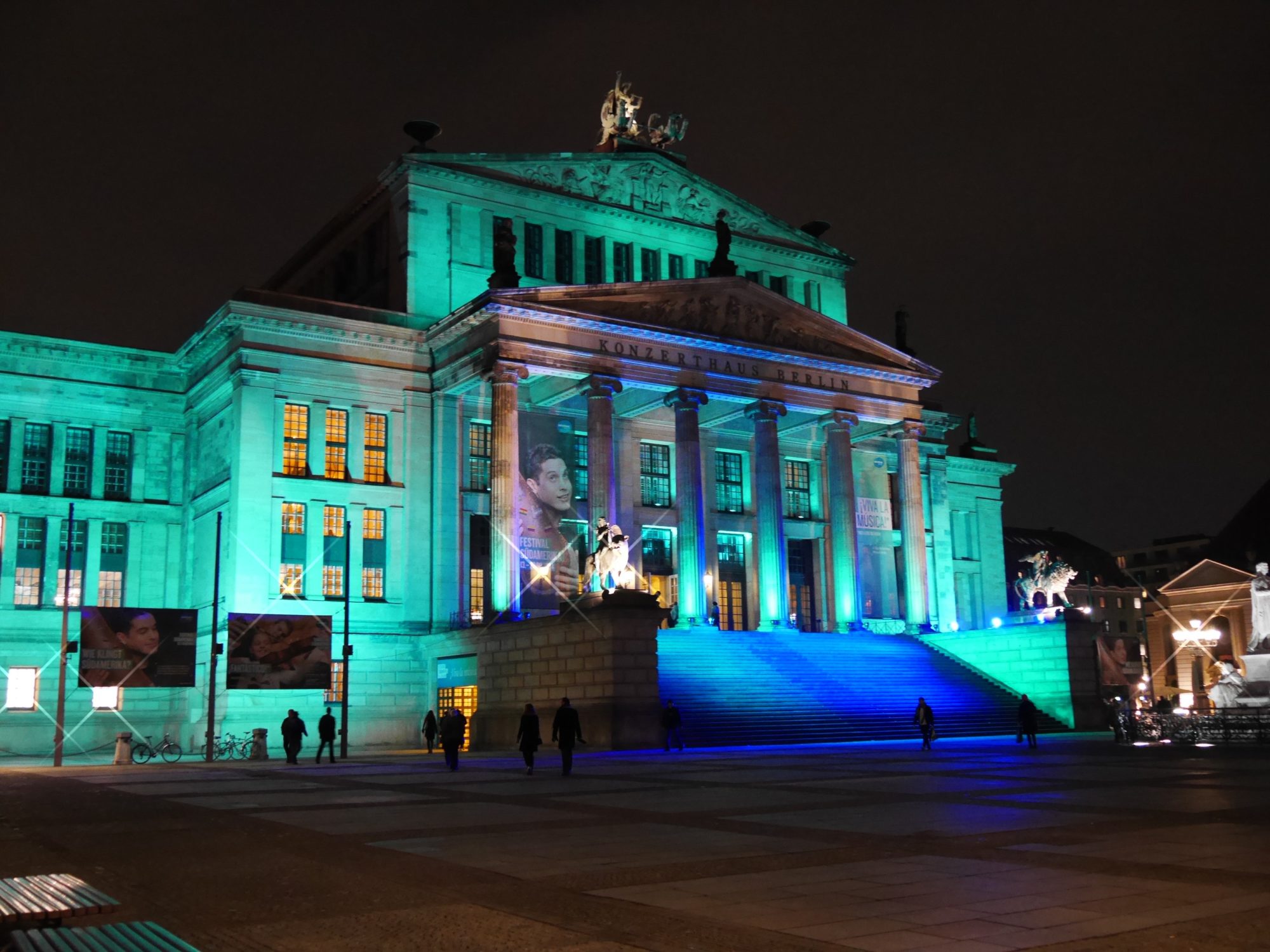The Arts Fuse (Jonathan Blumhofer – 26.01.2018)
[…] The current performance by the Ernst Senff Chor, Staatskapelle Weimar, and conductor Karabits fully embraces the music’s wild contrasts of extremes. The choral contributions are mighty: sometimes fierce, sometimes warm, always robust and precise. […]
www.musicweb-international.com (John Quinn – 01.01.2018)
[…] The textual source of the second movement is an unlikely one for a musical composition: Marx’s Theses on Feuerbach. Here, the listener is struck by the contrast between, on the one hand, the staccato writing for the male voices and, on the other hand, the rather lovely lyrical music for the female voices, which soars over the men’s’ material. […]
[…] . Throughout the Cantata the contribution of the Ernst Senff Choir is marvellous but in this movement special mention must be made of the clarity of their diction. In the hubbub I couldn’t always follow the words but most of the time I could hear what they were singing. […]
[…] After all this frenetic excitement, the seventh movement, ’Victory’, is, as you might expect, a big, aspiring chorus which gives thanks for the success of the Revolution. At 4:16 listeners who are new to the work may be slightly surprised by an unexpected sound. It’s the choir, who are instructed to march on the spot as they sing “We need a measured advance of the iron battalions of the proletariat”. Their marching continues almost to the end of the movement and it’s surprisingly effective. …. The performance is never less than exciting and the quality of both the choral singing and the playing of the Staatskapelle Weimar is superb.
However, the Audite recording, made in collaboration with Deutschlandradio, has rather more impact and this, I think, is for two reasons. Firstly, the excellent Philharmonia Chorus is a little further back in the sound picture on the Järvi disc – I think also that the professional Ernst Senff Choir sings even more incisively than do their British rivals. […]
Rondo (Guido Fischer – 16.12.2017)
[…] die im Rahmen des Kunstfests Weimar mitgeschnittene Neuaufnahme [ist] aber mehr als nur das Zeitdokument einer vergangenen Epoche. Was das bisweilen collagenartige Gefüge angeht, bei dem russische Volksliedanleihen auf schneidende Rhythmen, Akkordeon- auf Sirenenklänge, Straßen-Parolen auf sakrale Hymnen treffen, gelingt der höchst engagierten Teamleistung unter der Leitung des Ukrainers Kirill Karabits ein Agitprop-Sound, der nicht von gestern ist, sondern in seiner Modernität durchaus packend. […]
http://operalounge.de (Daniel Hauser – 01.12.2017)
[…] Nun also, zum 100. Jubiläum, besorgt mit dem Ukrainer Kirill Karabits ein weiterer renommierter Dirigent der jüngeren Generation eine Neueinspielung dieses zumindest problematischen Werkes im Zuge des Kunstfestes Weimar (Audite 97.754). Ihm zur Seite stehen der Ernst Senff Chor Berlin, die Staatskapelle Weimar und Mitglieder des Luftwaffenmusikkorps Erfurt. […]
Mitteldeutscher Rundfunk (Dr. Dieter David Scholz – 23.11.2017) BROADCAST
Beim diesjährigen Weimarer Kunstfest hat Kirill Karabits das Werk auf der Suche nach dem musikalischen Erbe der kommunistischen Epoche ausgegraben und aufgeführt. Beim Label Audite ist es jetzt in hervorragender technischer Qualität eingespielt worden. Die von Lust am Radau wie von Partiturtreue und spieltechnischer Präzision geprägte Einspielung ist von mitreißender Dynamik und Wucht. Man darf von einer Referenzaufnahme sprechen.
www.pizzicato.lu (Remy Franck – 21.11.2017)
[…] Die Staatskapelle Weimar mit zusätzlicher Untersetzung des Luftwaffenmusikkorps Erfurt und der Senff-Chor setzen dieses Dirigat sehr gut um, und die Aufnahme verstärkt den schnittigen, extrem klaren und transparenten Ensembleklang. […]
Fanfare (James H. North – 01.07.2018)
How does one judge a performance of such stuff? The chorus shouts a lot, but that seems appropriate.
Fanfare (Peter J. Rabinowitz – 01.07.2018)
[…] With superior work from his orchestra and chorus and first-rate engineering (maintaining clarity even in the most congested passages of the movement depicting the revolution), it’s the kind of recording that overwhelms you, just as the music was intended to do. To my ears, it makes an even stronger case for the work than any of the four predecessors I know, good as they are— Kondrashin’s (with significant cuts), Järvi’s, Titov’s, and Elder’s. […]With that small regret, this can be exuberantly recommended. […]
